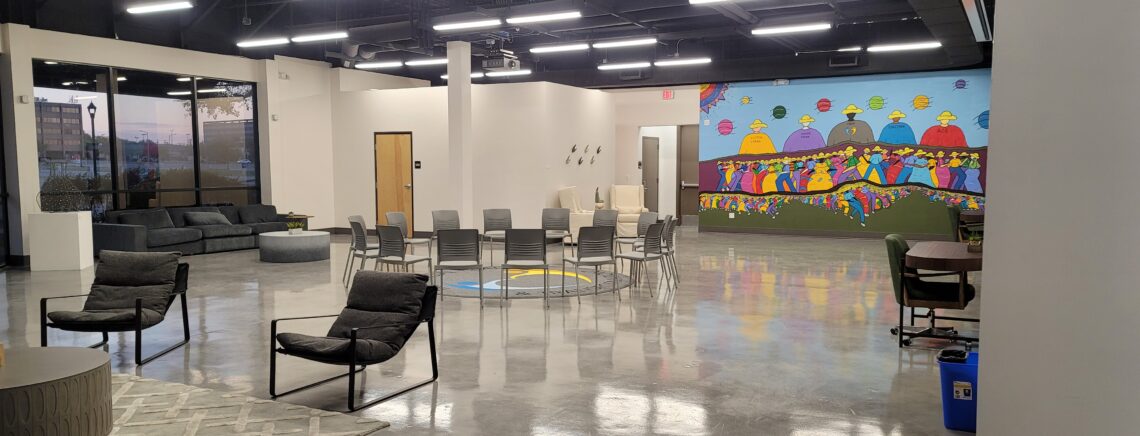Opened since 2020, ACC’s Truth, Community Healing & Transformation (TCHT) Center has evolved into a self-sustaining, community-integrated center collaborating with multiple local, state, and national varying institutions and organizations examining all forms of marginalizing, including but not limited to racism, which creates and sustains hindering of the shared goal of erasing barriers to increased learning, success, and thriving for all students and the communities they are a part of.
The TCHT Campus Centers received an initial grant award to develop and implement visionary plans to uproot the conscious and unconscious biases and misbeliefs that have exacerbated racial violence and tension in American society. When we became self-sustaining, we transitioned to a greater vision and mission of focusing on bridging people with multiple differences in culture, lived experiences, and backgrounds in keeping with our institution’s new Theory of Change, a culture of belonging building block.
Bridging involves crossing the identity-based lines of two or more groups and coming together across those acknowledged lines of differences in ways that both affirms their distinct identities and creates a new, more expansive identity. Bridging addresses tensions or “breaking” dynamics that sustain division in order to develop a new “we” that is not only more inclusive, but cohesive, durable, and consistent with bringing about belonging, success, thriving, and greater social justice for all.
The new “we” that results need not agree on everything, or even very much, but its members should have a shared empathy and lasting stake in one another. Bridging rejects all strict “us” versus “them” framings, but without erasing what is different and unique in each party.
ACC Project Goals
- To advance trust, strengthen social connections, and facilitate people’s ability to cooperate and compromise in building communities where all are accepted, cared about, respected, and valued.
- To create positive narratives about all people regardless of their multiple identities, lived experiences, and cultures.
- To identify and examine current realities about different people groups relations in communities.
- To envision communities where all persons belong, contribute to, and thrive in.
- To promote bridging healing activities on campus and in communities to form connections and partnerships between dissimilar individuals and groups.
- To leverage opportunities to unite all diverse groups in expanding our social networks, revitalizing our communities, and establishing a culture that eliminates barriers to equal treatment and opportunity for all people.
- To support student academic and postgraduation success, particularly among first-time in college, low-income, and underserved populations.
Accomplishments
- Organization of steering committee & subcommittees.
- Leveraged resources to offer trainings in framing communications with respect to different learning styles, varied individual communication abilities, and cultural differences. Read more about the NACE Communications & THECB Teamwork & Social Responsibility Core Objectives.
- Engaged more than 60 partners in the initial planning process.
- Engaged and empowered students to lead subcommittees and actively participate in assessment, planning, and training work.
- Held 43 Community Healing Circles to expand the bridge-building community resources.
- Began training Community Healing Circles facilitators.
- Researched the Community History of Central Texas.
- Recorded 92 Community Healing Stories from the community, students, staff & faculty.
- Drafted the Community Leadership Collaborative Curriculum.
Next Steps
The college celebrated the grand opening of its TCHT Center in April 2022. ACC will continue to host engagement opportunities with the community both in person at the Center and virtually. Check back here to find events and opportunities to get involved including regular conversations and monthly gatherings of students, families, and community leaders.
Location
Austin Community College selected a site at its ACC Highland Campus to serve as the college’s TCHT Campus Center.
Back to Top

